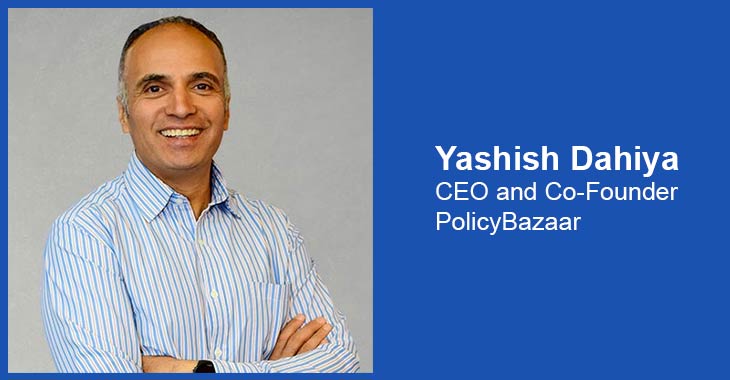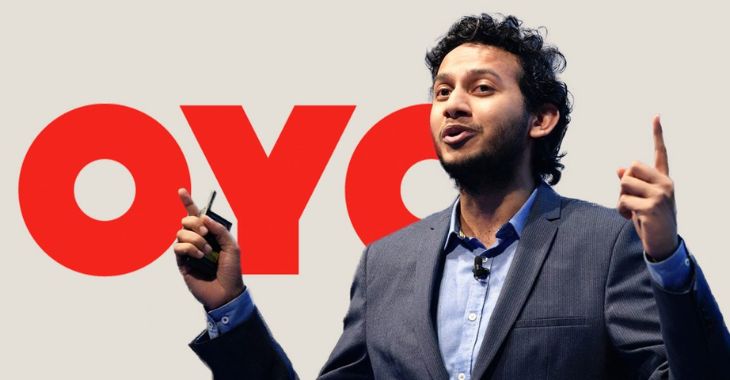PB Fintech CEO Yashish Dahiya: Investors need to know we are a boring firm that will develop
- ByStartupStory | November 9, 2022

PB Fintech co-founder and CEO Yashish Dahiya says he has made peace with the market, including investors and analysts not understanding the company’s emphasis on long-term development over profitability, a year after listing in a bull market.
CFO and co-founder Alok Bansal advises PB Fintech startup entrepreneurs wanting to list to recognise that private and public companies are quite different. Market instability and tech stocks’ worldwide decline have seen Policybazaar and Paisabazaar parent stock fall by almost 70% since listing. For November 15, the lock-in period on 27.73 crore PB Fintech shares expires, which may prompt investors to sell. In an interview with Moneycontrol, Dahiya and Bansal claim they would solely concentrate on growth despite the share price drop. The firm expects to earn Rs 1,000 crore by FY27 and be adjusted EBITDA-positive by the fourth quarter of FY23. Dahiya said the business wants to raise its insurance premium run rate from Rs 10,000 crore to Rs 35,000 crore by FY27. PB Fintech announced a Rs 187 crore quarterly loss on November 8. Q2 FY22 losses dropped from Rs 204.44 crore. Q2 operations revenue rose 105.11 percent to Rs 573.47 crore from Rs 279.58 crore previous year.

Interview excerpts of PB Fintech.
You’ve said you’ll prioritize expansion above profit. Your primary business grew and lost less this quarter. Profitability near? What’s the strategy there? Yashish Dahiya: Profitability is automatic since our main company has 45 percent gross margins and is increasing at 55 percent. While the primary business has not scaled, various efforts have made noise. New endeavors are overshadowed by magnitude. By 2027, we want to make Rs 1,000 crore. New efforts won’t matter then. ESOP expenses and new initiatives dominate our performance. Five years from now, ESOP expenditures may reach Rs 30 crore. Our ESOPs remain consistent year-to-year. The total annual expenditure is Rs 300 crore. Next year will be typical, with Rs 320 crore of ESOP expenses covered by adjusted EBITDA and interest income. It’s simple. Our core business EBITDA rose Rs 60 crore YoY in the quarter. Our new initiatives have dropped Rs 15 crore in the last two quarters. That will continue for two quarters. Both combined indicate adjusted-EBITDA positivity. Because we’re still in the first year following our IPO, ESOP expenses will remain high. They’ll keep decreasing. Interest income makes us cashflow positive without ESOP expenses. Interest income is 60–70 crore every quarter. Interest income of Rs 200–300 crore should cover our ESOP expenses next year. Next year, our positive adjusted EBITDA and Profit After Tax will only vary by Rs 50 crore. These things must happen. As things come into place, the market will believe. Taking time.
Alok Bansal: The losses coming down looked good optics-wise since the first half of FY22 had relatively modest ESOP expenses compared to FY23. The second half of FY22 and FY23 will include ESOP charges. Costs will drop this year. That, together with the company improving, will make the EBITDA loss statistic appear huge. It will appear fine, but the corporation did nothing new. You previously said that the markets are short-term and profit-driven. Will your stats improve perception?
Yashish Dahiya: I was irritated for the first six months after listing. No more frustration. If they don’t understand, it’s their fault. Don’t care. Explaining. I’ve also quit overexplaining. I concentrated on Rs 1,000 crore in profit by FY27 in our analyst call. Businesses are businesses. Value comes from profit. Let’s simply provide that amount. Insurance premiums rose 79% from FY22’s comparable quarter. Vertical growth? Continued growth?
Yashish Dahiya: Insurance will expand for other reasons. But considering our controllables. We grew as the retail protection business declined in the first half of FY23. Despite fewer inquiries, our premiums per inquiry have increased from Rs 1,100 to Rs 1,500.
How much revenue PB Fintech comes from physical touchpoints?
Yashish Dahiya: Our customer meetings increase conversion efficiency by 38% (premium divided by expenses). Physical team capacity is 14–15% of indexed capacity. It delivers 20% premium.
Alok Bansal: (PoSP). Offline is an extension of our contact center sales and service channel. The same consumer meets an employee in person.
Insurance premiums PB Fintech are Rs 10,000 crore every year. What are your future development goals?
Dahiya: Insurance premiums would reach Rs 35,000 crore by FY27. PoSP, at Rs 2,000 crore, should contribute Rs 10,000 crore. By FY27, the balance will triple to Rs 25,000 crore. That’s a moderate 22–23% growth rate. If we expand like last year, this will take two years,Four years.Your platform disbursed 12,000 crore in loans this quarter. How much will it grow?
Dahiya: Our country requires 10 times the insurance premium for credit disbursement. It will likely rise faster than the insurance price.
Alok Bansal: Credit cycles deeper than insurance. All-season insurance. Different.
Did the RBI’s digital lending norms require any lending flow changes?
Paisabazaar doesn’t touch money. Customers pay loans, and lenders get repayments.
UAE company growth plans? Will you expand geographically soon?
We’re OK. We don’t rush—we’re long-term. No imminent expansion plans. We’re dull. Investors and analysts need to realize that this firm is dull. Keep developing. They will always make money.
No pivots or other tamasha. We started with the goal of solving the middle class’s health and life insurance issues. Solving the challenge will take 20–30 years.
Alok Bansal: This management team seldom makes haphazard or big-bang purchases.Your analyst call said that your value is the same as 2018–2019. Explain.
Yashish Dahiya: Tencent invested in us at $1.5 billion pre-money in 2019. Pre-money value is $1.4 billion, excluding cash. We’re worth less than in 2019. It was unprompted. We generate 5.3 times more income.
Alok Bansal: When a firm isn’t raising money, these things don’t matter. Share prices might affect employee morale. However, we are not seeking further funding. Just execute over the next several years. PB Fintech’s lock-in period expires November 15. Are you concerned about regular investors losing money as the stock falls? Have you discussed post-lock-in strategies with investors?
On November 8, I talked with all our pre-IPO investors. I thanked them for their support before we went public. I no longer bind them. They can do what they want. I’m not directing them. We drove, they rode. They can leave whenever they need to. To be blunt, management does not control share price. Our growth and profitability deliverables exceed analyst expectations. Investors and I are responsible for the share price. As the largest retail investor, I care about the share price. I possess 11 times more shares than individual investors combined. However, as founder and CEO, I should not worry. That’s Yashish Dahiya and ordinary investors’ concern.
We’ll follow through this for PB Fintech.
What do you advise startup entrepreneurs planning to list in the next months? Last year’s lessons?
Alok Bansal: Listing requires justification. This method is efficient for raising funds. Companies have greater flexibility but more limitations. Private and public companies have distinct lives. I just hope companies and founders realize that before listing. Private markets sometimes forgive. They may also connect more profoundly. Public markets limit investor engagement. Yes, dialogue becomes superficial. Earnings calls help clarify your company concept and figures. Avoid the markets until your company strategy is stable.









